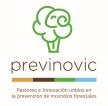
CARBOGAN Operational Group: Digitalization of extensive grazing management as a carbon sequestration strategy
- Type Operational group
- Status In progress
- Execution 2024 -2027
- Assigned Budget 585.914,00 €
- Scope Supraautonómico
- Autonomous community Andalucía; Castilla y León; Extremadura
- Main source of financing CAP 2023-2027
- Project website GO CARBOGAN
Development of a digital platform based on the recommendations for grazing management and the data and algorithms obtained through the monitoring system. It will be a tool for visualizing information and helping farmers make decisions, to facilitate the implementation of grazing management techniques that optimize carbon sequestration in grasslands and contribute to mitigating climate change. The main added value for farmers of having a digital tool is the ability to optimize grazing management, increasing efficiency and sustainability, and improving carbon capture in pastures.
Extensive livestock farming plays a crucial role in the sustainability of our ecosystems, not only providing high-quality products but also contributing to environmental conservation. To maximize these benefits, it is essential to improve the economic, environmental, and social sustainability of extensive livestock farms through the use of innovative digital tools.
These tools allow for the valorization of good management practices, especially those related to carbon balance. With this in mind, the project seeks optimal livestock management based on a selection of good pasture management practices, with the aim of improving carbon sequestration and thus enhancing the economic, environmental, and social sustainability of extensive livestock farming through innovative digital tools that combine information from multiple sources.
To this end, the final product created will be a digital platform for the identification, monitoring, and assessment of good management practices in extensive livestock farming. A guide to good livestock practices will help industry professionals decide how to handle animals.
- Act 1: Literature review to identify good grazing management practices related to greater carbon sequestration. Evaluation of each technique and each practice with respect to the possibilities of practical implementation in the work area. Development of a guide with recommendations for good management practices for extensive grazing to improve the carbon balance.
- Act 2: Literature review Feasibility study of generating indicators related to soil carbon storage Feasibility study of generating indicators related to vegetation carbon storage Feasibility study of generating indicators related to the livestock management system.
- Act 3: Selection of practices for collecting near and far data. Delimitation of livestock farms of interest. Collection of ground-truth data and generation of soil variables, near, far, and combined. Development of software modules for integrating data from IoT devices and open data sources. Training and generalization of environmental sustainability monitoring algorithms for extensive livestock farms, calibration of results, and validation of models.
- Act 4: Definition of requirements and functionalities Development of the business model for the tool Development of a livestock practices monitoring module Development of modules for generating recommendations for livestock farmers Viewer with environmental sustainability indicators for extensive livestock farms Development of interoperability protocols Technical validation of the tool, including livestock farmers.
The project aims to contribute in the following ways: Greater resilience to climate change: Concerted and collective action by all stakeholders in the agricultural and livestock sector is urgently needed to ensure the implementation of existing and promising mitigation strategies. Indeed, the need to reduce the sector's emissions and ecological footprint has become increasingly pressing given their continued increase.
This is evidenced by the recent support shown by the Spanish Government, through the Minister of Agriculture, Fisheries and Food, Luis Planas, who expressed in a letter to the United States Secretary of Agriculture, Thomas Vilsack, Spain's conviction that investments in innovation and R&D for agricultural and food systems can sustainably improve agricultural productivity, while improving livelihoods, environmental protection, and climate change adaptation and resilience.
Facilitating the implementation of the new CAP: Ecoregimes are a key intervention in the environmental architecture of the new CAP. Various ecoregimes have been proposed at the national level, and in Spain's case, one aims to support farmers who practice extensive grazing. Expanding carbon sequestration in agricultural soils: Sustainable land management will be essential to achieving the EU's climate-neutrality goal by 2050, as it will increase the amount of carbon captured and stored in vegetation and soils.
Providing knowledge and information to enable future monetization of carbon capture: This opens a new avenue for supplementing livestock income and a path toward greater environmental sustainability. The livestock sector has the potential to contribute significantly to necessary mitigation efforts. In this sense, extensive livestock farming plays a fundamental role in providing ecosystem services such as carbon capture, erosion control, fire control, biodiversity conservation, and more.
To improve the economic, environmental, and social sustainability of extensive livestock farming through digital tools that highlight good management practices related to carbon balance. To this end, environmental and economic sustainability indicators will be established for the different types of extensive livestock farming, especially for grazing resources. A useful tool will be provided for livestock farmers and public authorities to improve the management of extensive farms and increase carbon sequestration from pastures.
- Identify good management practices for extensive grazing.
- Develop a system of quantitative indicators using data from near and far sensors to estimate the impact of good grazing practices on carbon sequestration in extensive livestock farming.
- Design and develop a digital tool to monitor the implementation of good grazing management practices and their effects on carbon sequestration.
- The development of a digital platform, based on grazing management recommendations and the data and algorithms obtained through the monitoring system, will serve as a tool for visualizing information and assisting farmers in their decision-making. This will facilitate the implementation of grazing management techniques that optimize carbon sequestration in grasslands and contribute to climate change mitigation.
- Coordinator/entity name: Union of Small Farmers and Ranchers
- Postal address: Agustín de Betancourt Street, 17, 3rd floor, 28003 Madrid
- Coordinator/entity email: upa@upa.es
- Telephone: 91 554 18 70
- Unión de Pequeños Agricultores y Ganaderos
- Unión de Pequeños Agricultores y Ganaderos
- DIGITANIMAL SL
- FORA FOREST TECHNOLOGIES SLL
- AGRESTA S.COOP.







